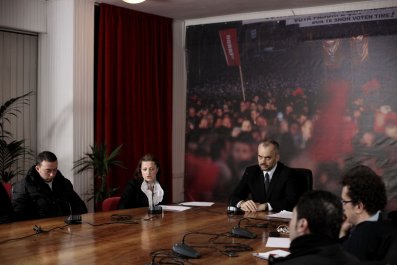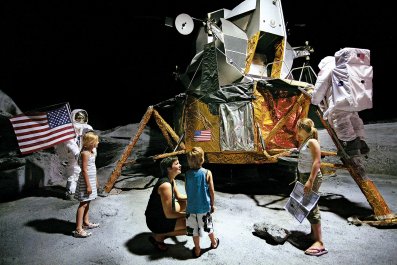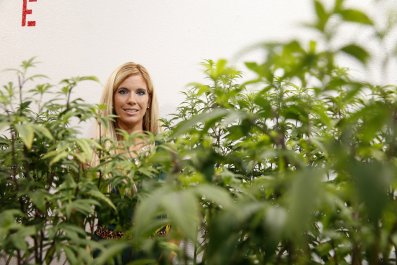For too long, we've had to "find a job." It's about time the right jobs found us.
Most of us generate so much data as we use Facebook, LinkedIn and smartphone apps that software can already rummage through our likes, endorsements and transactions and put together a staggeringly accurate personality portrait. At the same time, a bunch of tech companies in the human resources space are working on ways to use data to truly understand the nuances of a particular job at a particular company.
If data can understand the job and also intimately know all the potential candidates for that job, software should be able to make a great match, saving everybody a lot of agony. A little software agent for the open job might show up on your smartphone screen like a prince holding a glass slipper that fits only you. Maybe it will play the " Hallelujah" chorus as the perfect job is presented, ensuring that you and your prospective employer will live happily ever after.
We're getting there a little at a time. For much of the population, searching for a job is still a hunt-and-peck kind of chore. You look through listings and send résumés into black holes. Maybe you're lucky and hear about a job through someone you know. You waste hours in the interview process, answering bizarre queries like, "If you were asked to unload a 747 full of jelly beans, what would you do?"—an actual interview question reportedly asked of a candidate at Bose.
(Note: This column does not apply to the small slice of workers who possess a red-hot skill. A Python coder's experience in the job market is more like that of the only bartender on a fraternity-themed cruise ship.)
Over the past 25 years, technology has brought about significant changes in the job-finding milieu. In the 1990s, job listings went online on sites like Monster.com, making them searchable and global. In the 2000s, LinkedIn crashed the scene, becoming the world's repository for résumés and professional contacts. So now when you're unemployed, you can easily find out where all your friends work.
If each decade turns the crank in an important way, we're due for another revolution in the job-search field. At a human resources conference last month called Destination Talent, conversation centered on two pervasive problems today's technology needs to fix. One is reducing the time it takes to fill a job. The other is about finding precisely the right fit between a person and a job, so great employees stay longer and feel more engaged. Online listings and LinkedIn have made it easy for employers to find loads of potential candidates—but HR folks would rather see fewer, better candidates.
At the other end, job hunters would love to apply for only jobs that are exact fits so the probability of getting hired will be very high—and time wasted very low.
We're seeing early versions of how this might play out. EmployInsight, founded in 2012, is using data to understand intangible traits such as curiosity, levelheadedness or self-motivation that fit with a company's culture and are highly valued for a specific job within it. Then the system can help sort for the kind of personality that might best fit an open job, instead of just matching a particular skill set. Other companies are circling around similar ideas. Aon, the U.K. insurance and human resources giant, put out an app called Mood Ring that lets employees quickly register how they feel about their jobs at any given moment—another path to understanding the culture of the company that's hiring. Pomello, a startup out of Y Combinator, gathers data about teams inside companies so employers can find new employees well-suited to work with that team.
So far with such technologies, candidates have to take a test to see if there's a match. But as researchers and lenders are discovering, data from a Facebook profile can pinpoint a personality better than a human assessor. It's not much of a leap to deploy software like EmployInsight's to analyze Facebook to find personality fits. And LinkedIn has the professional data that might be missing from Facebook—so if EmployInsight-type software could look at both, it should be able to find people who have the right job history and are the right cultural fit for every opening.
One big player, Glassdoor, is something of a manual way to bring better fits to the job-hunting game. Glassdoor's reviews help guide people to cultures where they might click. "We can help reduce 'bad fit' turnover, [and] that ultimately contributes to greater productivity and a stronger economy," CEO Robert Hohman told Fast Company. In fact, Hohman is onto the big payoff here.
Software that matches the perfect job to the perfect candidate would squeeze the huge inefficiency of job searches out of the economy. The U.S. Labor Department puts the number of unemployed at 8.3 million and the number of jobs open at 4.5 million. Surely a significant number of those unemployed just aren't seeing the jobs they could fill, while many employers struggle to uncover great candidates.
The costs to the economy are enormous when people remain unemployed or muddle through their days in jobs they hate. Polls show only 30 percent of employees are fully engaged at work. Raise that to even 50 percent, and it would be like putting the economy on meth. Solve the problem of it taking too long to put the right people in the right jobs, and a whole lot of us will be happier and richer.
Unless, of course, robots take all our jobs. Then HR robots will just use the software to hire other robots, and the rest of us can oil their servos.






















